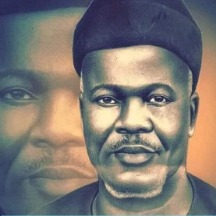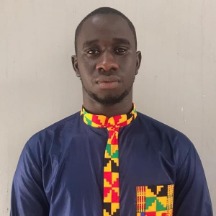“Learning the N'ko script enables me to read and write in my mother tongue,” exclaimed Ahmad M. Cęęsay (ߊߤߑߡߊߘ ߛߌ߬ߛߋ߫), a Mandinka speaker in Sukuta Nema, Western Division, The Gambia. “This has been our dream long before I came to know about the existence of the N'ko script that was invented by Professor Sulaymani Kante of Guinea Conakry,” the poultry farmer continued.
Kante (1922 – November 23, 1987) is best known as the inventor of the N'ko alphabet for the Manding family of languages. There are many dialects of Manding. The best-known are: Bambara, the most widely spoken language in Mali; Mandinka, the main language of The Gambia; Maninka, or Malinké, a major language of Guinea and Mali; and Jula, a trade language of the northern Ivory Coast and western Burkina Faso.
Related Quote
“Speak your native language to your children or watch it die within the next 20 years. Looking down on your relatives who speak your native tongue because you speak perfect English is stupid. It is like being proud of borrowed clothes.”
-Unknown
Quranic students, according to Cultures of West Africa, often start their recitations with the word N'ko. This was also a reference to a historic speech that Sundiata Keita, Mali’s Emperor, delivered to his army in 1236, when he said: “I am speaking to you, valiant men, to all those who say N'ko, and those who don’t.” The phrase "N'ko" means "I say" in all Manding languages.
“Some of our terms and pronunciation defer but we generally understand one another,” explained Ceesay, founder and manager at Fansoto Farm. Ceesay produces chickens, eggs, and papaya fruits in a village south of Banjul, the capitol city of The Gambia, a country where more than 30 percent of the people identify as Mandinka and many more speak the language.
The professor created N'ko in 1949 after five years of experimentation with various writing systems. He acted in response to beliefs that Africans were a "cultureless people," - - a belief that prompted other Africans around the world to invent an African response to White supremacy including American Carter G. Woodson, Haitian Joseph Anténor Firmin, and Canadian Rosemary Sadlier.
Sulaymani Kante: Inventor of N'ko/Mandinka Alphabet
Features




Since there was no indigenous African writing system for the Manding language, prior to his invention, this also motivated Kante to create the script and change the course of Manding history. The script is written from right to left, with letters being connected to one another.
The script first came into use in Kankan, Guinea as a Maninka alphabet and was disseminated into other Manding-speaking parts of West Africa. “I learned and continue to learn about it. I was taught by some Gambians and others from Guinea Conakry back in 2017,” says Ceesay, who learned the script in The Gambia.
Related Quote
“People should speak their own language,” polyglot Fodeh Baldeh admonishes, “because they can often express themselves better.” In addition to his first language Fula, publisher Baldeh speaks English, Wolof, Mandinka, and French.
N'ko advocate Ceesay encourages all, particularly African Americans and others in the diaspora, to learn the script. The Kotu Secondary School graduate says, “It will empower them, by giving them a script that represents who they are.” And many will agree that representation is important.
Notes:
Ceesay provided Port Of Harlem two translations of the magazine’s name in the script: "ߔߏߕ ߏߝ ߤߊߟߍߡ" and “ߤߊߟߍߡ ߕߍ߲ߘߊ߫," with the second being better.
Cultures of West Africa: N'ko Alphabet: a West African Script – interesting interactive site with history and sound.
There is also a N'ko version of Wikipedia.
How To Write The N'ko Alphabet (ߒߞߏ) Of West Africa: A Tutorial
N'Ko Institute of America
The second most spoken language in The Gambia is Fula. Available for sale: A Dictionary of Gambian Fula and A Handbook on the Pula Language by Fodeh Baldeh.
The script first came into use in Kankan, Guinea as a Maninka alphabet and was disseminated into other Manding-speaking parts of West Africa. “I learned and continue to learn about it. I was taught by some Gambians and others from Guinea Conakry back in 2017,” says Ceesay, who learned the script in The Gambia.
Related Quote
“People should speak their own language,” polyglot Fodeh Baldeh admonishes, “because they can often express themselves better.” In addition to his first language Fula, publisher Baldeh speaks English, Wolof, Mandinka, and French.
N'ko advocate Ceesay encourages all, particularly African Americans and others in the diaspora, to learn the script. The Kotu Secondary School graduate says, “It will empower them, by giving them a script that represents who they are.” And many will agree that representation is important.
Notes:
Ceesay provided Port Of Harlem two translations of the magazine’s name in the script: "ߔߏߕ ߏߝ ߤߊߟߍߡ" and “ߤߊߟߍߡ ߕߍ߲ߘߊ߫," with the second being better.
Cultures of West Africa: N'ko Alphabet: a West African Script – interesting interactive site with history and sound.
There is also a N'ko version of Wikipedia.
How To Write The N'ko Alphabet (ߒߞߏ) Of West Africa: A Tutorial
N'Ko Institute of America
The second most spoken language in The Gambia is Fula. Available for sale: A Dictionary of Gambian Fula and A Handbook on the Pula Language by Fodeh Baldeh.
Advertisers | Contact Us | Events | Links | Media Kit | Our Company | Payments Pier
Press Room | Print Cover Stories Archives | Electronic Issues and Talk Radio Archives | Writer's Guidelines






